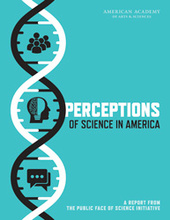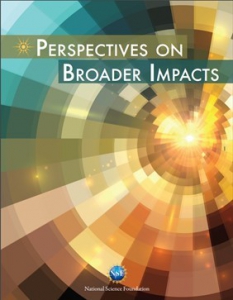To discuss strategies and supports to maximize the societal impacts of your work, schedule a consultation with Research Impact Coordinator Jocelyn Bosley (jbosley@unl.edu, 402-472-1181).
Guiding Principles
What does NSF require?
Get a high-level overview of societally relevant outcomes and review criteria specified by NSF
Planning Checklist
What elements are needed in a BI project?
Use this list to review the key elements of an effective BI project proposal
BI Wizard
How to I develop my BI project proposal?
Our wizard will walk you through all of the key steps to building partnerships and and effective project
BI Project Rubric
How to I assess my project’s potential?
Use this rubric to help you evaluate a Broader Impact project plan
Design Tools:
Faculty Tip Sheet for Engaging with Communities through Nebraska Extension
Roadmap to Successful Collaboration with Lincoln Public Schools
Meeting recordings
Sept. 18 Research Impacts Developing Impact Identity
Websites:
Alan Alda Center for Communicating Science advances science and medicine through training in clear and vivid communication.
Informal Science is a collection of project, research, and evaluation resources designed to support the informal STEM education community in a variety of learning environments.
Network for Advancing and Evaluating the Societal Impact of Science is an international, open community for various types of professionals working on stimulating and demonstrating the impact of science on economy, culture and well-being.
Portal to the Public Network helps informal learning organizations connect public audiences with current science in their own communities through conversations with local scientists and engineers.
The Science Cartoons (SciToons) program was developed to engage STEM and non-STEM students and faculty in the creation of science animation.
SciFund Challenge provides training to empower your professional and outreach development through free or low-cost online classes.
The Story Collider is dedicated to true, personal stories about science and shares them through weekly podcasts and live shows around the world.
Publications:
Articles:
Barlow, A.E.L., and Villarejo, M., (2004) Making a Difference for Minorities: Evaluation of an Educational Enrichment Environment, Journal of Research in Science Teaching, 41(9): 861-881.
Berdanier, C.G., & Farmer Cox, M. (2016) Characterization of Intellectual Merit and Broader Impacts Criteria in NSF Graduate Research Fellowship Program Applications. American Society for Engineering Education.
Butler, V. (2017) Kicking It Up a Notch: Becoming a Culturally Relevant Science Educator. Retrieved from The Company of Biologists LTD.
Chang, M.J., Sharkness, J., Hurtado, S., Newman, C.B., (2014) What Matters in College for Retaining Aspiring Scientists and Engineers from Underrepresented Racial Groups. Journal of Research in Science Teaching, pp. 555-580.
DeBruyn, J. (2018). How to Nail Broader Impacts in Your Next NSF Grant Application . Retrieved from American Society for Microbiology.
Dirks, C. and Cunningham, M. (2006) Enhancing Diversity in Science: Is Teaching Science Process Skills the Answer? Retrieved from CBE—Life Sciences Education.
George, M.D., Watts, S.M., & Levey, D.J. (2015), Achieving Broader Impacts in the National Science Foundation, Division of Environmental Biology. Bioscience, 65, 397-407.
Hurtado, S., et al., (2009) Diversifying Science: Underrepresented Student Experiences in Structured Research Programs. Retrieved from National Center for Biotechnology Information, 50(2):189-214.
Kotadia, S. (2017) Berkeley STEM Equity & Inclusion Initiative: Executive Summary. Berkeley Division of Equity & Inclusion.
Moss, J.Q., (2011) An Undergraduate Summer Research Experience for Underrepresented Students in Agricultural Sciences. NACTA Journal, 55:32-37.
Nagy, D. (2002) Determinants of Broader Impacts Activities: A Survey of NSF-funded Investigations. The Journal of Research Administration, 68-93.
National Science Foundation, (2002) Merit Review Broader Impacts Criterion: Representative Activities.
National Science Foundation. (2018) Merit Review Process. Retrieved from Spring Grants Conference.
Schultz, J.C., and Stemmle, J.T., (2012) Teaching Future Scientists to Talk. Retrieved from The Chronicle of Higher Education.
Stage, F.K., Ginelle, J., & Hubbard, S.M., (2011). Undergraduate Institutions that Foster Black Scientists. In H.T. Frierson, & W.F. Fate, Beyond Stock Stories and Folktales: African Americans’ Paths to STEM Fields (pp. 3-21). Emerald Group Publishing.
Thompson, M. (2018) Moving Towards a Research-Based Understanding and Approach to Broader Impacts. Retrieved from LinkedIn.








